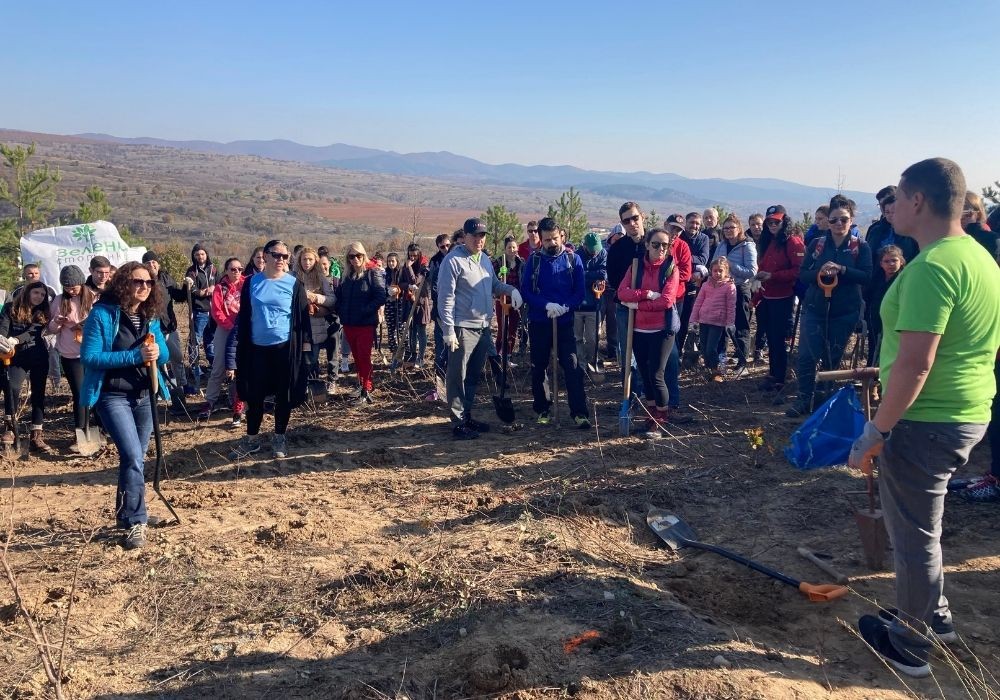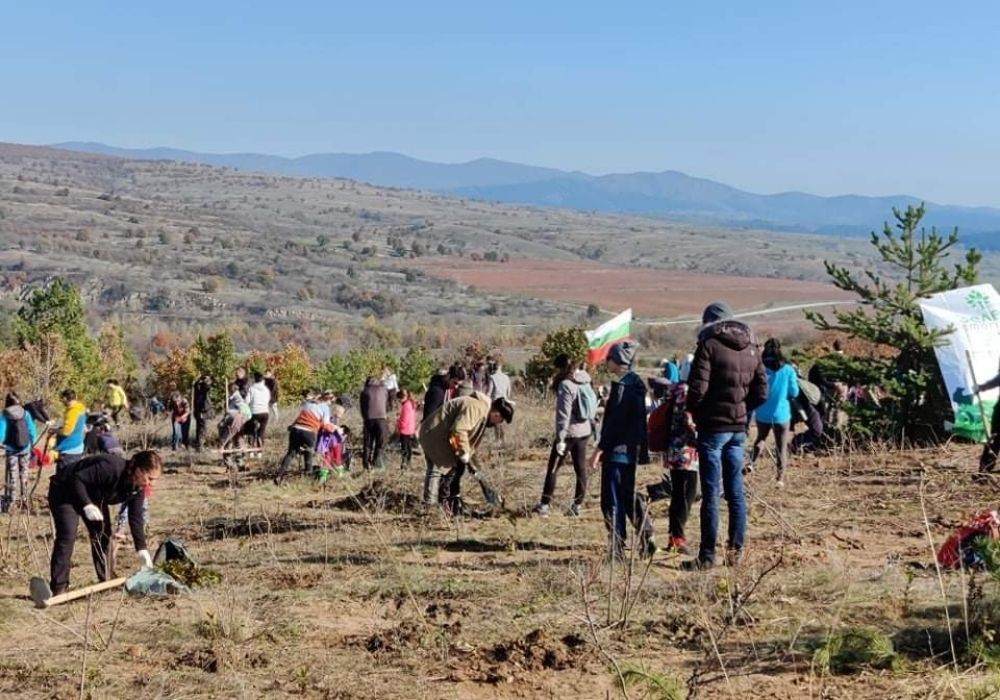Raya is 36 years old. She graduated from the Classical High School in Sofia, but continued her education in the Netherlands and Great Britain. She has lived in many places in Europe and currently works in the International Labor Organization in Geneva, where she heads the design department. She has two master's degrees and is currently on her path to a third university degree related to climate change.
She does not own a home and has no personal car but she has a forest! Like many young people, Raya is deeply concerned about the environment. She is sure that everyone can be useful in preserving nature through small steps. "I felt I had to do something," Raya Ubenova says. That is how the idea to invest all her personal savings in buying a large plot of land in Bulgaria and planting it with trees emerged.

This is the most useful and inexpensive technology for carbon dioxide sequestration. There are many other benefits, too. Forests stop erosion, provide habitat to various animals and improve the quality of soil, Raya Ubenova has told us.
In April, she returned to her homeland to look for suitable agricultural land, close to a forest. She found it near the village of Tserovo in Pazardzhik. "The area of the forest is a total of 1.95 hectares. On the spot we came across a few pines, wild juniper and mostly bushy vegetation,” Raya says.

The young conservationist started her activities in afforestation carefully, after long studies and consultations.
"Since I have no special knowledge in this field, I contacted Assoc. Prof. Dr. Nasko Iliev, who is an expert. He prepared a technological plan with the appropriate types of afforestation. He recommended that the main species should be different types of oak trees. The accompanying species that provide diversification of the forest are linden, maple, wild juniper and others.”
Raya Ubenova’s forest is already a fact. On November 13, more than 300 volunteers from across the country joined the afforestation initiative. In the next 2-3 years, volunteers will regularly take care of the young trees and remove weeds.

What was the reaction of Raya’s relatives when she told them that she was preparing to part with all her savings in the name of humanity and nature?
"I was absolutely sure I would it," Raya says. “I knew this thing was right and necessary, so I was immune to their reactions. My mother was very worried because I have no home and buying this land without living there or making profits of it was incomprehensible. But my stepfather embraced the idea completely and helped me a lot.”

According to the young woman, the main priority of most of Bulgarians is to provide a living for themselves and their families and overcome the everyday obstacles and that is why they are rarely interested in global issues, such as nature conservation. However, more and more Bulgarians are being actively involved in environmental initiatives, which is encouraging, Raya Ubenova says in conclusion.
Photos: courtesy of Raya Ubenova
English: Alexander Markov
Easter 2020 went down in history with two things. The first was the state of emergency, introduced due to the Covid-19 pandemic that imposed a number of restrictions on us, the consequences of which we are still recovering from. The..
At various times in its existence, the BNR's Directorate of Foreign Language Broadcasts, now known as Radio Bulgaria, the multimedia multilingual platform of Bulgarian National Radio, was more than just a workplace for a number of popular journalists...
February 16, 2025 marks the 127th anniversary of the first bulletin of the Bulgarian Telegraph Agency, signed by its first director Oscar Iskander. The agency was established in 1898 by a decree of Prince Ferdinand I. Just like 127 years ago, today the..
21 February is International Mother Language Day, first proclaimed as such by UNESCO and later adopted by the UN General Assembly. The right to..
"The place in France where we draw together the future of our children in Bulgarian" - this is how Yaneta Dimitrova described her workplace - the..
"Thracians, Wine and Culture" is the theme of a seminar at the archaeological complex "Valley of the Thracian Kings" near Kazanlak , which brings..

+359 2 9336 661
